We’ve all had that morning. We wake up, our head pounding and our bodies feel weak. Thinking back to the night before, we wonder what could have caused this massive hangover because there was only that single bottle of wine shared over dinner and an evening of laughter with a loved one.
Were you poisoned? Probably not intentionally. Check the bottle of wine you consumed and do a bit of digging. You might be surprised to find that the expensive pinot with the gorgeous label and the perfect description boasting notes of apricot and earthy subtleties you lovingly picked out to pair with your tiramisu contained sulfites, a high amount of added sugar, and other additives that range from toxic chemicals to heavy metals.
While this is quite the problem for wine lovers everywhere, we found a solution that is second to none. A company that holds wines to the high standards we crave.
Dry Farm Wines
We’re excited to introduce Dry Farm Wines. This incredible company is working with wineries all over the world to bring safe, delicious, and ethical wines to your doorstep. What makes their wines different than commercial wines? Here’s what they have to say about it.
1—No Additives
In the United States, wine producers can use 76 different additives in wine, without disclosing any of them on the bottle.
Commercial wine producers use additives for consistency – they’re making millions of bottles, and they want them all to look and taste the same. That means adding defoaming agents, artificial coloring (virtually every red wine under $20 has the colorant “mega purple”), extra sugar, high fructose corn syrup, ammonia (part of the reason low-quality wine makes you nauseous the next morning), and genetically modified bacteria and yeasts.
All these additives offer companies such tight control over their wine that nature’s seasons no longer matter. Every wine will taste the same, year after year and bottle after bottle.
We value wine guided by the diversity of nature, without interference from commercial additives.
2—No Sugar or Carbs
Most commercial wines are bottled before they fully ferment to speed up production and maximize profits. Some producers also add sugar or high fructose corn syrup to their wine, a process called chaptalization, to appeal to a sweeter American palate.
Our wines ferment at their natural pace, which allows yeasts and bacteria to convert the natural sugar into alcohol, and the alcohol into other compounds. We lab-test our wines to make sure they have statistically insignificant amounts of sugar and carbs (<1g/L for each).
Why so low? The main reason is health. We celebrate the ability to pair wine with a Paleo or Keto low-carb lifestyle that’s optimal for health. In fact, every single one of us at the Dry Farms family is either Paleo or Keto.
Sugar is also a main culprit in hangovers. Testing for it is part of what makes our wines hangover-free.
3—Low Alcohol
Commercial winemaking favors higher-alcohol wines. Average alcohol content in wine has been rising over the past couple decades, currently sitting around 14% ABV. Our wines are, at most, 12.5% ABV, and many are lower. We choose low-alcohol wines for three reasons:
Alcohol drowns out the finer notes in wine. Studies find casual drinkers enjoy low-alcohol wine more. We notice the same, and think you will too.
A glass or two of wine a day improves heart health and enhances your insulin response. It may also help you live longer: in nearly all Blue Zones – parts of the world where people live longest – moderate alcohol consumption is part of the culture. But any more than a drink or two and alcohol becomes a toxin. We want you to be able to enjoy a couple glasses of wine with dinner while staying comfortably within the beneficial dose for alcohol.
Of course, there are nights when you’ll probably have more than a drink or two. When you indulge, having steady microdoses of low-alcohol wine throughout the night will prevent you from getting hungover.
4—Living Wines
We look at two wines under a microscope. One was a Sancerre from a well-known commercial wine company and the other was the same varietal, a Sancerre, that had been grown naturally and bottled without filtering.
We found that the commercial Sancerre is dead in the bottle. All the living organisms in it have been killed and removed.
On the other hand, the natural Sancerre is alive. It’s rich with beneficial bacteria and wild native yeasts that continue to influence the wine, even as it sits in the bottle. The result is complexity of aroma and flavor that evolves over time. Leave the bottle out for a couple hours and you’ll return to a whole new tasting experience. The yeasts and bacteria offer health benefits, too.
By the way, if this is interesting to you, check out Isabelle Legeron’s book, Natural Wines. It’s a masterful exploration of biodynamic wine, and the best place to start if you’re interested in discovering the rich culture that surrounds artisanal winemaking. You can order a copy here.
5—Small, Biodynamic, Dry Farms
Biodynamic farms are wild ecosystems. The farmers who make our wines balance grapevines with trees, flowers, herbs, vegetables, chickens, sheep, and so on. Each farm is a contained natural world, home to a rich variety of parts that coexist in harmony. The biodiversity strengthens soil bacteria, leading to healthier, polyphenol-rich wines with thoughtful complexity of flavor.
Our wines also all come from organic, dry farms. That means no pesticides and no irrigation. Organic dry farming creates resilient grapes with a wide array of aromatic compounds, imparting a beautiful personality to our wines.
6—Sustainability
All our wines come from sustainable winemakers whose practices return nutrients and bacteria to the soil. Our wines reflect nature’s logic and design; they enrich the natural world instead of destroying it. Sustainable winemaking means lower yields and a longer growing and aging process; the exquisite end result is worth the patience.
7—Taste
Ultimately, our obsession with quality comes down to taste. We source soulful wines that capture the elegance of nature. Each bottle contains a living, evolving experience.
Natural wine crafted according to our health criteria also tastes clean and fresh. Without heavy additives and artificial flavoring, the wine goes down smoothly. It pairs better with food, and it’s wonderfully drinkable.
Wine is an expression of decadence. At the end of the day, it’s meant to be enjoyed and to bring people together in love. We take great pleasure in tasting our wines; we hope you will too.
Get your First Bottle for A Penny
We partnered with Dry Farm Wines to bring you an amazing deal. Sign up with them and you’ll receive a bottle of this natural, organic wine for just a penny!
Click here to receive the finest, organic wines right to your doorstep
We Heart
One of the most common questions we get when we talk about living a sustainable life is about how we find good products to use. In a nutshell, it’s a team effort. We share with each other and we each have a network of people that know we’re always on the lookout for sustainable lifestyle products.
WeHeart is our place to share those products with you, and we hope that you share with the sustainable seekers in your life.
Before we share these, we test the products and vet the companies by reaching out to ask questions about ingredients, processes, and sustainable efforts. We want to help shed light on companies that are doing amazing things and that share our same code of ethics when it comes to respect for the Earth and transparent practices.
To find out who’s on our We Heart list next month and beyond, get on the list:
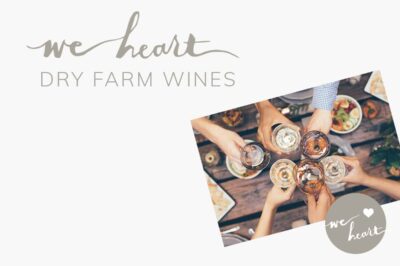

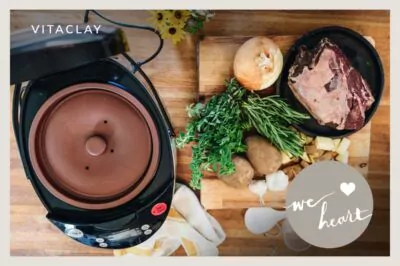
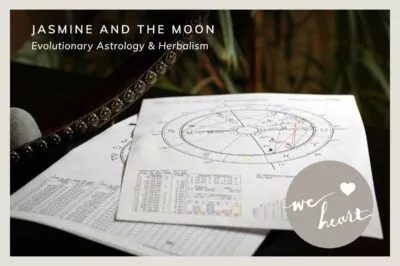
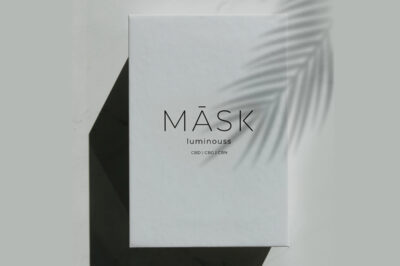


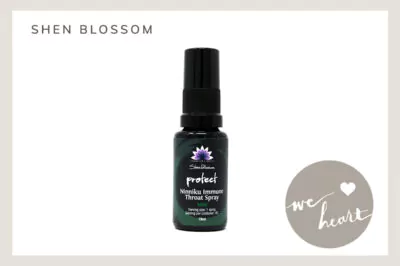
Leave a Reply